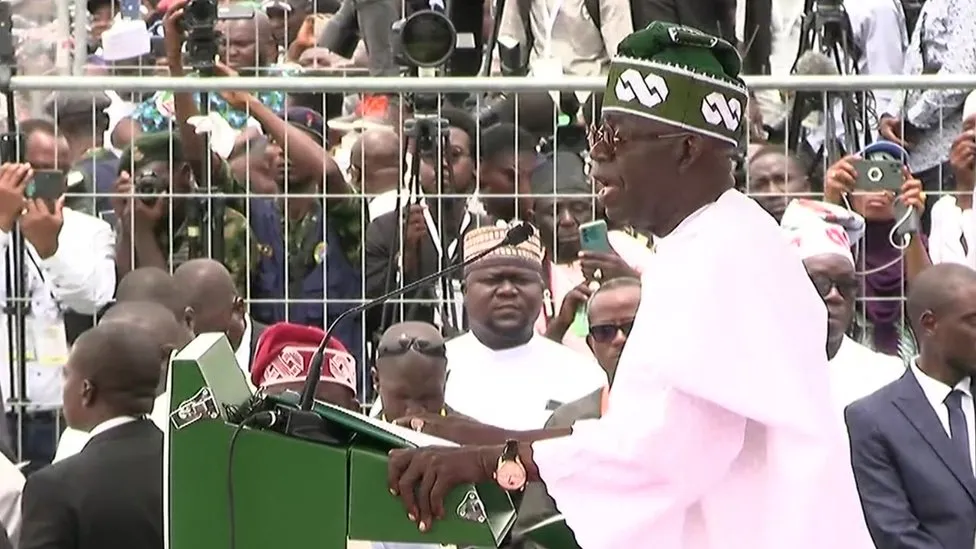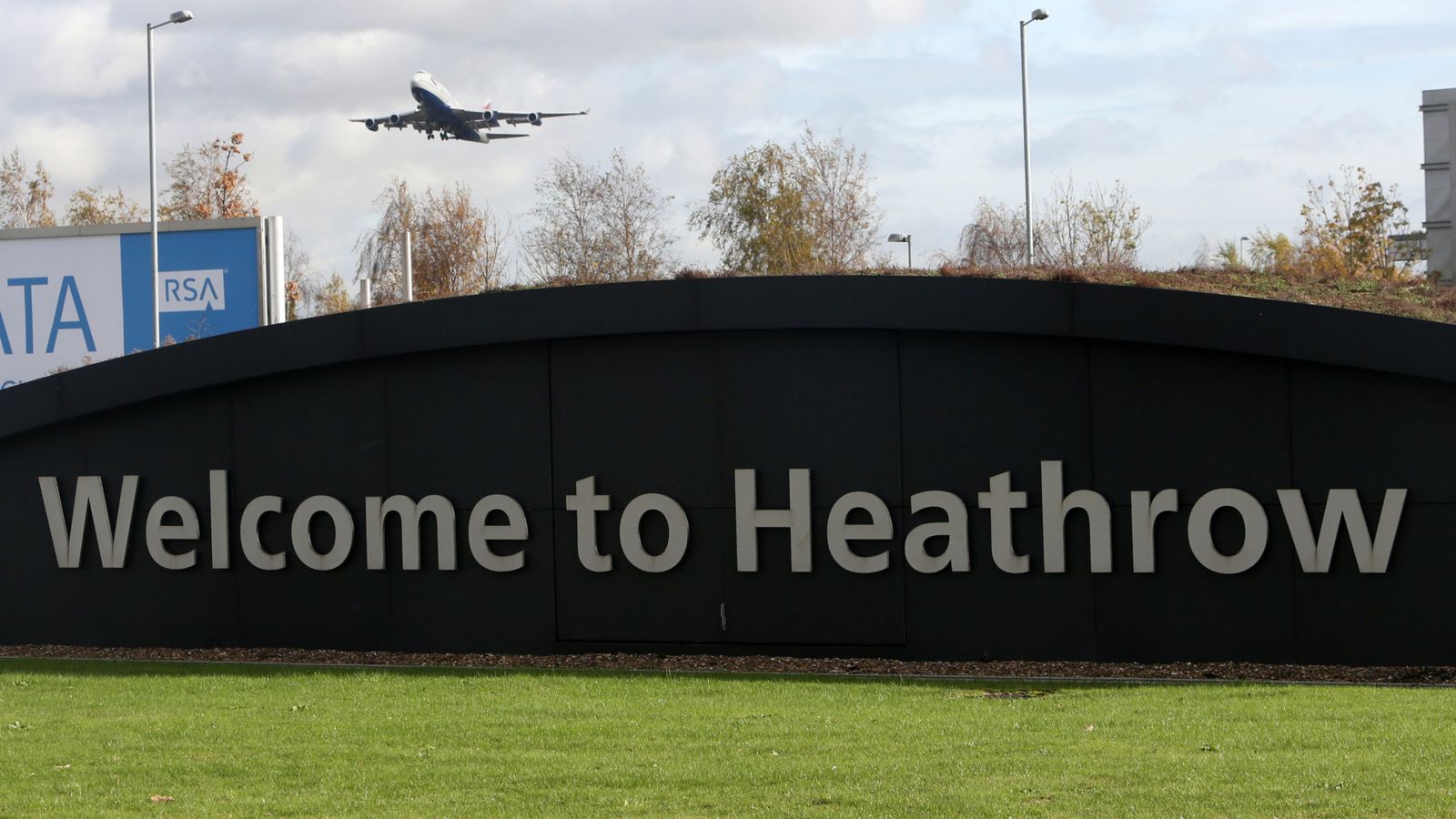Bola Tinubu inauguration: Nigeria's new president takes bold policy step
The new president of Africa's largest democracy, Nigeria, has used his inaugural address to make a major policy announcement.

Bola Tinubu, 71, won February's disputed election with a promise to renew hope - but he faces tough economic and security challenges.
As part of a plan to deal with those he announced an end to a decades-long subsidy on petroleum products.
"Fuel subsidy is gone," he told a packed crowd in the capital, Abuja.
It is not clear when the petrol policy will kick in, but ending the subsidy will lead to a rise in price of petrol and could have a knock on effect on other prices.
Mr Tinubu was sworn in at a ceremony in the capital, Abuja after winning February's election.
He takes over from two-term President Muhammadu Buhari amid a high inflation rate, record debt levels and increasing cases of kidnap-for-ransom.
Mr Tinubu's victory is being challenged in court by his two closest rivals.
They say the outcome was manipulated.
But Mr Tinubu, who said he was "spreading his hand across the political divide", described the election as hard-fought and said it was of a better quality than previous ones.
Dignitaries from across the continent including presidents Paul Biya of Cameroon, Senegal's Macky Sall, and Mohamed Bazoum of Niger were at the ceremony.
Mr Tinubu may have little time to celebrate. Nigerians expect swift action.
Inflation is running at its highest rate for nearly 18 years, one in three people are unemployed and the output of the vital oil industry is shrinking.
He will have to move quickly in all areas to convince people who did not vote for him that he is up to the task.
He acknowledged these in his speech, saying his team would release its economic roadmap in weeks but pointed out that interest rates were too high.
He also said that women and youths will feature prominently in his administration and hinted at employing more security personnel to tackle the country's challenges
As a two-term governor of Lagos, he revitalised Nigeria's commercial hub - no easy job - and is well aware of the issues.
His allies say he will take the same technocratic and thoughtful approach to running Nigeria, a vast country of more than 200 million people.
But opponents of the new president say he has lost the vitality he used to forcefully modernise Lagos.
Since the election he has travelled abroad twice, raising questions about his health. In 2021 he spent months in London being treated for an undisclosed illness.
He has brushed off the criticism, saying the job does not require the fitness of an Olympic athlete - and his associates are quick to remind everyone that US President Joe Biden is older, at 80.
But if the candidates who came second and third - Atiku Abubakar and Peter Obi - in February's presidential election have their way then Mr Tinubu may not be in power for very long.
The election tribunal is expected to start hearing the main arguments on Tuesday and the outcome of the case should be known within the next six months.
-bbc







